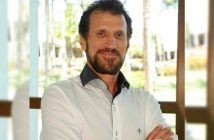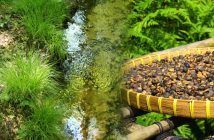Pinhalense is a global leader in coffee processing machines and, according to its president, Reymar Coutinho de Andrade, the covid-19 epidemic has not affected the results of the last two years. Quite the opposite.
The company (www.pinhalense.com.br) achieved record sales of BRL 200 million in 2020, which will be easily surpassed in 2021. And, for 2022, Reymar expects the company’s financial performance to be even more robust.
Check out the exclusive interview we held about the economic outlook, sustainability and future scenarios in the coffee market:
Grão Especial – How were sales during these 18 months of pandemic for Pinhalense?
Reymar C. de Andrade – Our business, agricultural machinery, has been operating for two years, year by year and month by month, feeling a very strong boost in sales volume growth. With the pandemic, the production has not halted and the commercial model and remote access to customers have been intensified.
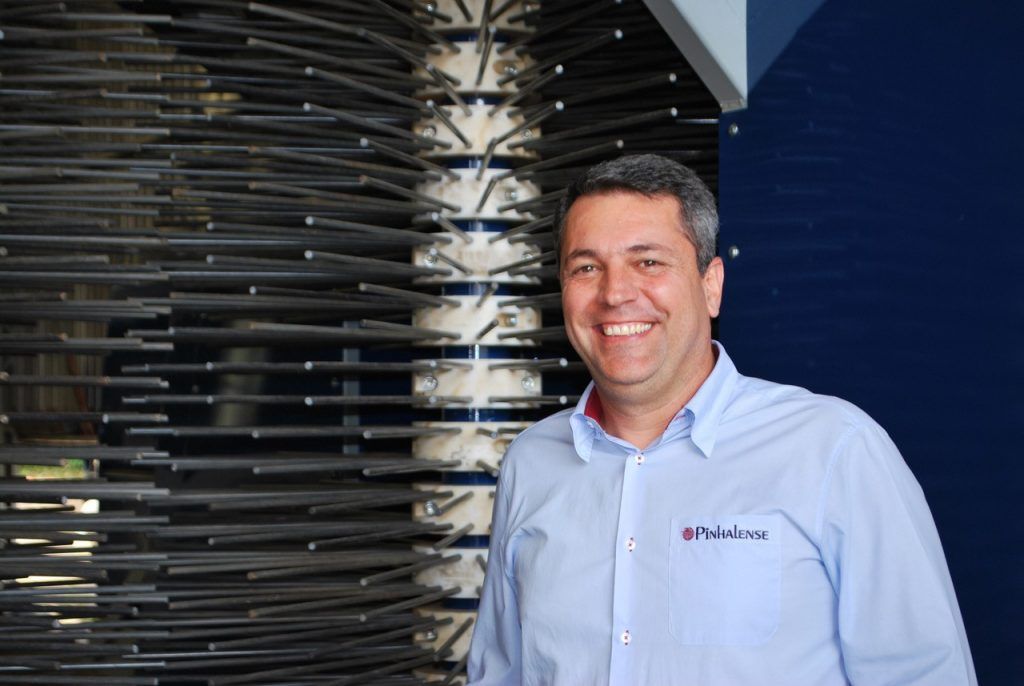
Grão Especial – And how can that be explained?
Reymar C. de Andrade – The explanation is that we are going through a growing harvest of the 19/20 biennium. We left a big harvest, and in February/March 2019, there was a drop in prices and the grower was extremely unmotivated. From the middle of 2019 onwards, we witnessed the beginning of an escalation in the prices of coffee bags. And, to better understand this scenario, we have to understand the period as two harvests and also the time scale to understand the market’s behavior.
Thereby, producers were coming out of a small harvest, obviously, the demand for equipment reflected the moment, that is, it was also small and bag prices were very low. In the second half of 19/20, with the resumption of coffee prices, especially from November onwards, the demand that had been repressed, and the high harvests, encouraged producers to invest in their properties, in their business, together with those who sought to improve the quality of their coffees.
In this way, from November 2019 until today, we are seeing an increase in prices for different reasons: drought, frost, international logistics, Colombian default of their respective contracts, Vietnam crop shipment problems and the logistics issue from Asia to Europe and to the US, which ended up resulting in higher coffee prices on the New York Stock Exchange. Added to this is an escalation in the devaluation of the Real and an appreciation of the dollar against the local currency. As a result, the Brazilian producer became better paid. So, the final analysis of this context is that coffee growers, with a repressed demand and growing capitalization of their crop, ended up going shopping.
They invested more in their structure, in machines, and thus we spent the last quarter of 2019, 2020 and 2021 in full, with a growing sales record. And, for 2022, we believe that the scenario will be the same, given the prices of the bags, with the good harvests that we will have. It will be smaller, but still, it will be a good crop. In other words, producers will go shopping, have a demand for equipment and have the capital to do so.
Our problem with the pandemic is the supply chain and the simultaneous escalation of iron ore and steel prices, the latter being our main input, which directly impacts the production cost and the final price of the machine to be sold.
Suppliers fail, you are not able to deliver the product on the agreed date, and this problem persists and intensifies to this day, with the difficulties of international logistics, of the chain of motor-reducer engines and electrical components, which, in essence, depend on importing components, suffers a lot from the import capacity and the problem of international logistics; not only due to the costs, but also by reason of the availability of containers. And what is the result of this? A delay on top of another delay. And we are talking about large companies, multinationals, unable to fulfill their commitments and pushing a whole chain forward, which ends up turning into a snowball.
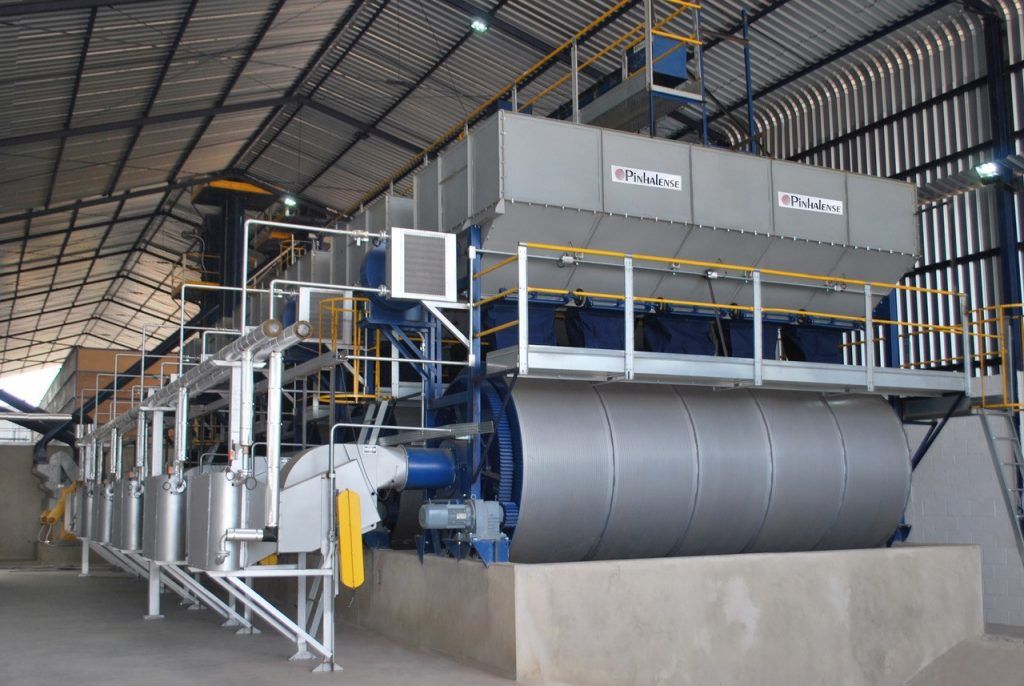
Grão Especial – Let’s talk about a thoroughly current topic: sustainability. At the end of the month we will have COP 26 and we know that Brazil will be massacred, mainly due to the inaction to preserve the Amazon. What is your vision? What has Pinhalense been doing in this regard?
Reymar C. de Andrade – You have touched a very important point within this chain. Coffee is a product that demands and depends on this image of a sustainable product, due to the markets it reaches around the world. We are talking about the USA, Europe and Japan, which are extremely demanding destinations from the point of view of sustainability. We realized that what the market as a whole did, within this process, was to try to shield, through its own certifications and international global certifications, the image and effect of Brazil from the degradation of the Amazon, through its own work. We are an industry located in the center of the city of Espírito Santo do Pinhal, in SP, and at times we have to be very careful from the point of view of waste, pollutants, emission, waste treatment, which are not that many, although they do exist. Thereby, we fulfill the role within that chain.
In my opinion, farmers are divided into three categories: those who do not think sustainability is an important issue, and I will not comment on them. The second category is for those who understand the importance of sustainability within their business. And then, I would divide it into two categories: the first is for those who believed that sustainability and certifications would bring financial return, that there would be a greater appreciation of their coffee due to receiving a seal, whether it is a, or c, and, that over time realized that the gain was not in the certification but in the possibility of accessing certain markets, which is what allows them to remain fit.
And there is a third category, which unfortunately is the minority, of those producers who have incorporated the philosophy of sustainability into their business and realized that the gain is not in the sale and marketing of their coffee, but in what sustainability brings into the process of it and for its operational gain. Here we could mention the properties that embraced a regenerative agriculture, those that went through the attempt to produce organic or biodynamic coffee, but realized that the model did not allow for a healthy economic scale.
Some remained within this purpose, others left in search of an alternative that also had the pillar of sustainability. They are producers who understand that they do not need a certificate to prove they have good practices, but they adopt it because it is an important part of their chain. The challenge is how to show this to people who are far away from their properties, in a distant country, where the image of the destruction of the Amazon is not attached. And the Amazon has a fairly relevant weight abroad.
Every time Brazil tries to compare itself to other coffee producing countries, from an environmental point of view, it lags a little behind, because another part of the world’s coffee growing is inserted in forests, in large environmental reserves, whose land model is very small, with low-income family labor on the properties.
From the point of view of social sustainability, these producing countries have more appeal to the international public. And that’s why they are so valued by some markets and that’s why producers are paid and prizes are paid in this context. This is the case in Bolivia, Colombia, Central America, and some African countries.
While Brazilian producers, who follow a more technified, more commercial land model, I would even say a more professional one, need to show that they didn’t cut down the tree to plant their coffee, that they didn’t destroy the Amazon, that they didn’t degrade anything, and that the practices are as sustainable or more sustainable than some locations. And I know practically the whole world when it comes to coffee production. Brazil has a strong legislation, the cultural level of producers, in general, is higher in Brazil.
And we realize this because of the interest in our machines, developed to use less energy and water and make better use of waste.
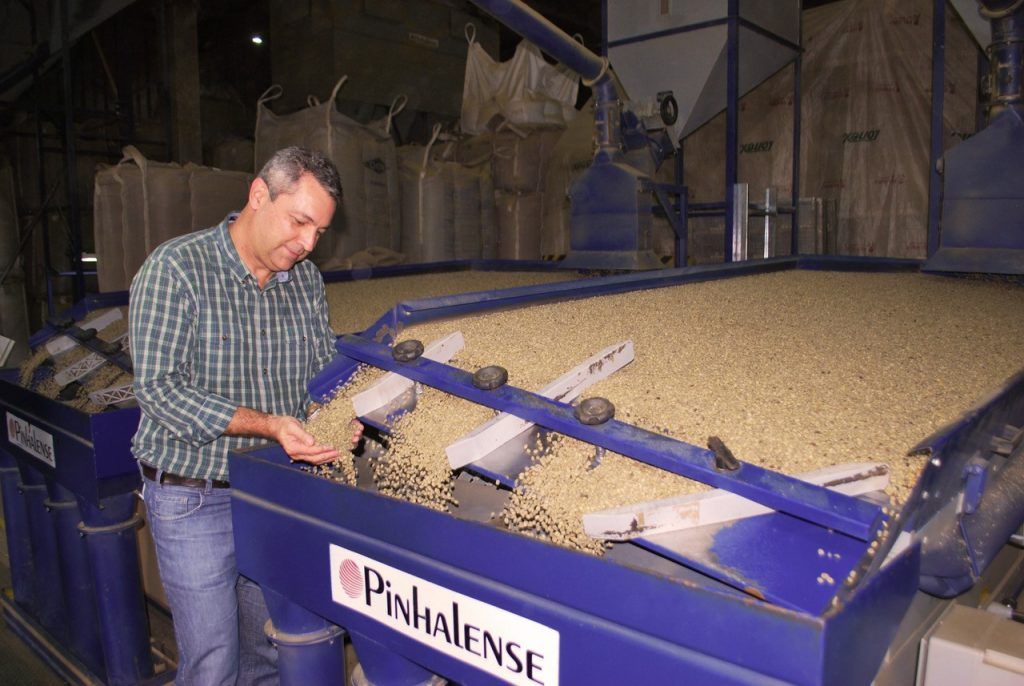
Grão Especial – Is your customer also demanding more sustainable machines?
Reymar C. de Andrade – We promote more than what they demand. They still need to be awakened to the subject. I’m going to make a comparison with the hybrid cars, which I think fits well. As an industry, I need to approach you and tell you that we are now manufacturing a hybrid car and that it will pollute less and that the mix of technologies we use will allow us to achieve a long battery life, which could be interesting. The same thing can be said about our machines.
Today, can you imagine anyone paying more for a hybrid car only for philosophical reasons? We are going to walk towards that fraction of the market that is very small, but that believes in this. We need to show our customers that new technologies have an ecological gain. To imagine that someone will pay more for a new technology is flawed. We must demonstrate the financial gains, showing that it will produce more, using less water and less energy. Sustainability and awards alone are not enough to motivate coffee producers to join this cause.
Grão Especial – What moves coffee growers in good practices is what they will gain, right?
Reymar C. de Andrade – Without a doubt, but this works like that on all areas of the economy..
Grão Especial – And are you expecting regarding 2022?
Reymar C. de Andrade – We do not reflect the average of companies in Brazil. We are a point outside the curve. We have a large share in the foreign market, and our main business is coffee. And for many years we haven’t seen coffee prices at such high levels. In 2022, I see that producers will be investing in their property and they will have found out that they will not be able to buy their neighbors’ lands because their neighbors also have as much money as they do. Buying more lands is the model of the past.
The dynamics will make our business continue with great strength. Our sales peak occurs in the months of November, December, January, February and March, and I am entering the sales moment with four months of tight portfolio ahead. Producers finish the harvest by September, October, November. And then they go shopping, because they need to be prepared for the next harvest, which is in March. My sales curve is starting to rise now and is already starting with an expanded portfolio in 2022. With the increase in bag prices, I will see my customers happy. We have a barter operation, and they will come and exchange their machinery for future coffee.

